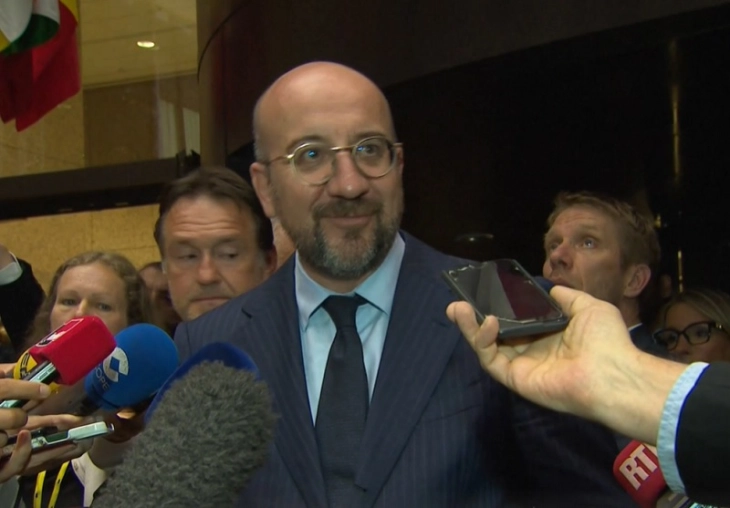No EU deal yet to back Ursula von der Leyen for second term
- EU leaders have not yet reached a decision on a second term for Ursula von der Leyen as president of the European Commission, European Council President Charles Michel announced during the early hours of Tuesday morning.

Brussels, 18 June 2024 (dpa/MIA) - EU leaders have not yet reached a decision on a second term for Ursula von der Leyen as president of the European Commission, European Council President Charles Michel announced during the early hours of Tuesday morning.
"The purpose today was not to make a decision," Michel told journalists after the EU leaders' dinner meeting, despite widespread expectations of a swift agreement. "This is planned for next week."
Rather, Michel said, the purpose of Monday's meeting was "to have an in-depth exchange of views." He said the gathering was "a useful step to prepare the next European Council."
The political backing for von der Leyen was expected to end months of speculation over whom EU leaders might nominate for the bloc's top job following the recent European Parliament elections.
The largest pan-EU political bloc, the European People's Party (EPP), formally endorsed von der Leyen for a second term before the June 6-9 vote, in which the conservative group performed well.
But von der Leyen, a German conservative, will also need to find a significant number of votes among other groups.
Michel said that as well as agreeing on who will fill the top jobs, EU leaders also needed to agree on what will be expected of those they pick.
"We need to agree on a team and we need to agree on a programme," he said.
Also under negotiation was the appointment of the future president of the European Council - the assembly of EU leaders, a role currently held by Michel - and the successor to EU high representative for foreign affairs, Josep Borrell.
EU leaders were expected to back former Portuguese prime minister António Costa for European Council president and Estonian Prime Minister Kaja Kallas as the bloc's next foreign affairs chief.
The commission president is in charge of the EU's powerful executive arm, charged with developing new EU policies, enforcing existing EU laws and representing the bloc at important international summits like the G7.
German Chancellor Olaf Scholz, a Social Democrat, laid the ground early for von der Leyen's nomination in an interview on Saturday.
"It is clear that after the results of the elections everything speaks in favour of Ursula von der Leyen having a second term in office," Scholz said, pointing to the strong performance of the EPP.
Despite the lack of agreement for von der Leyen, Kallas and Costa, Hungarian Prime Minister Viktor Orbán hit out at the outcome of Monday's talks as a done deal to divide up "the top jobs of the EU."
"They don't care about reality, they don’t care about the results of the European elections," Orbán wrote in a post on social media, "and they don’t care about the will of the European people."
"We will not give in to this! We will unite the forces of the European right and fight against pro-migration and pro-war bureaucrats," he added.
To be nominated, von der Leyen needs the support of a "reinforced qualified majority" of EU leaders, representing at least 20 countries and 65% of the European Union's population. A total of 13 EU leaders are in political parties affiliated to the EPP.
The EPP, aiming to capitalize on their advantage, also made a push to break the convention of two consecutive two-and-a-half-year terms for the European Council president role, according to EU diplomats.
That would mean two council presidents would serve during the term of a commission president, the aim being to share the position between the EPP and another political group.
Von der Leyen also needs to win majority support in the newly-elected European Parliament to secure a second term. The new parliament will hold its constitutive meeting next month in Strasbourg, France.
Both the centre-left Socialists and Democrats (S&D) and the liberal Renew Europe group are important sources of potential support for von der Leyen in her confirmation vote.
The leaders of the 27 EU member states will meet again next week for a regular EU summit, normally held four times a year to discuss the issues of the day.
Dutch Prime Minister Mark Rutte noted that EU decision-making can be unpredictable, "but I would think now that we will not have a re-run of 2019, when it was a big tombola and everything was up for grabs for three days. That's not the case here. It seems to be much more clear."
In 2019, the then-relatively unknown von der Leyen was nominated by EU member states, when the official candidate of the EPP, which won the most seats in the elections, was Bavaria's Manfred Weber.
Photo: Screenshot







